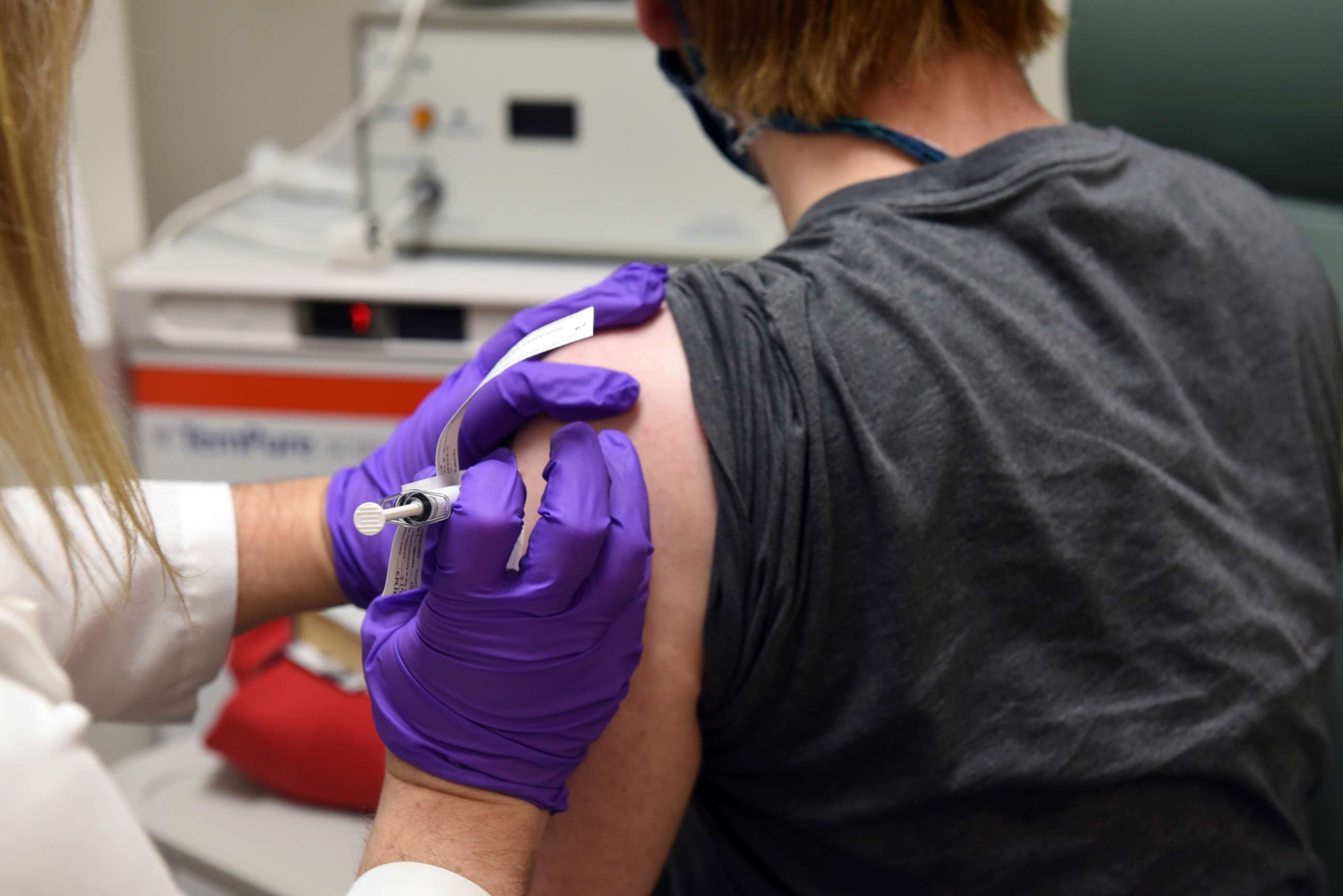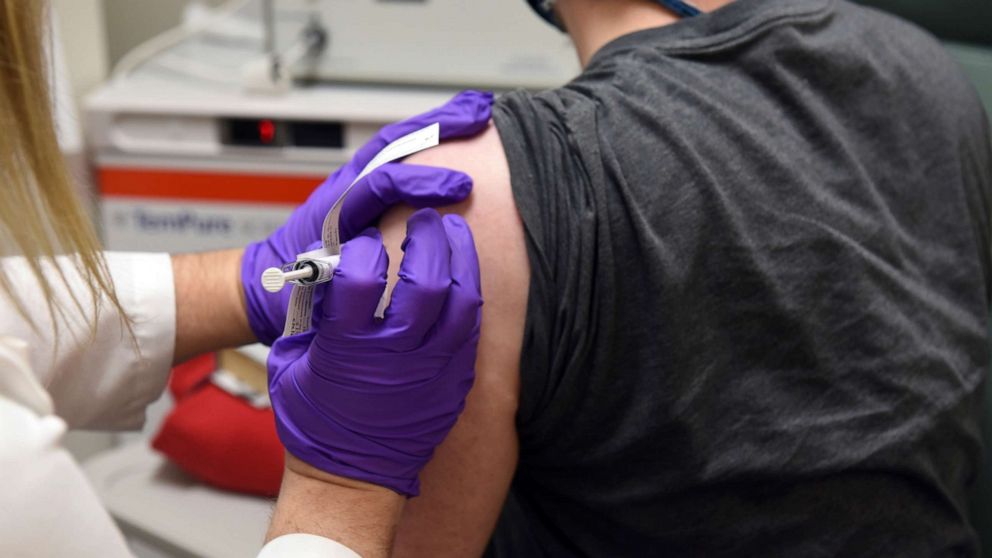CDC advisers call for 1st COVID-19 vaccines to go to health care workers, long-term care facilities
A group of independent experts voted Tuesday that health care personnel treating patients -- as well as workers and residents in nursing homes and other long-term care facilities -- should get the first shots of a COVID-19 vaccine when one is authorized by the Food and Drug Administration.
A Centers for Disease Control and Prevention advisory committee on vaccines, called the Advisory Committee on Immunization Practices or ACIP, voted Tuesday on who it recommends should receive the initial limited supply of COVID-19 vaccine.
Early in the meeting, Beth Bell, a clinical professor of global health at the University of Washington and leader of the committee's vaccine work group, took a moment to acknowledge the severity of COVID-19 in the country saying an average of one person is dying from the disease every minute.
"In the time it takes us to have this ACIP meeting 180 people will have died from COVID-19, so we are acting none too soon," she said.

The committee discussed how to prioritize vaccine distribution within the population of health care workers, specifically, including considerations for pregnant or breastfeeding health care personnel since the vaccine candidates have not been studied in how they affect pregnant women. The recommendations include prioritizing health care personnel in direct contact with patients and who can't telework, those who provide services to patients or family members of patients and those who handle infectious materials before moving on to vaccinate other groups.
"Vaccinating healthcare personnel supports the principle of maximizing benefits and minimizing harms through what we are calling the multiplier effect," explained Dr. Kathleen Dooling, Medical Officer for the Division of Viral Diseases, the National Center for Immunization and Respiratory Diseases, and the CDC.
"Protection of health care personnel leads to preservation of health care capacity, and better health outcomes for all. It promotes justice because health care personnel put themselves at risk and will be essential to carry out the vaccination program. Vaccinating healthcare personnel also has the potential to mitigate health inequities, because the group includes a broad range of occupations, inclusive of low wage earners and racial and ethnic minority groups," Dooling added.
Nancy Messonier, Director of the National Center for Immunization and Respiratory Diseases at CDC, also said most jurisdictions anticipate being able to vaccinate all health care workers within three weeks.
The recommendations also include guidance for hospitals and local health departments working on plans to vaccinate outpatient providers and personnel outside the hospital setting. They also suggest medical facilities should stagger vaccinations for people working in the same unit in the event of any side effects that could cause people to miss work. After the recommendations are finalized by CDC, they'll be published online so states can use them to inform their own vaccine distribution plans.
The committee also discussed how to ensure that health care providers, pharmacies, and health departments tracking the administration of the vaccine can collect data on any adverse side effects and communicate that information between different data tracking systems.
“I just want to reiterate the importance that CDC places on the safety of vaccines," Messonier said.
"I know that FDA will not authorize a vaccine and ACIP will not recommend a vaccine, unless you are convinced, based on the phase three clinical trials, that the vaccines are very safe. But we all also know that vaccine safety doesn't stop there and especially for these vaccines. We're going to hold ourselves to an exceedingly high standard for safety monitoring after a vaccine is authorized and when it's rolled out," she said.
While the focus this week is on which groups of Americans can receive the first round of vaccine doses for any COVID-19 vaccine, there will be more recommendations specific to the Pfizer and Moderna vaccines after the FDA reviews their requests for emergency use authorization.
HHS Secretary Alex Azar has said he will work with CDC so the FDA committee considering whether vaccines should be authorized and the CDC advisory group can meet at the same time so there are recommendations for how to distribute the initial doses of vaccine available as quickly as possible as shipments start to go out to states.
Then, as more doses are produced and become more widely available, other groups of frontline workers or Americans with less risk will be able to access the vaccine.
The ACIP committee is made up of experts from around the country who make recommendations about how vaccines should be used, including who should receive certain vaccines and when, and the recommended schedule for vaccinating children. The members don't work for the government but provide independent expertise in how vaccines work, how the immune system responds, family medicine, and infectious diseases.




